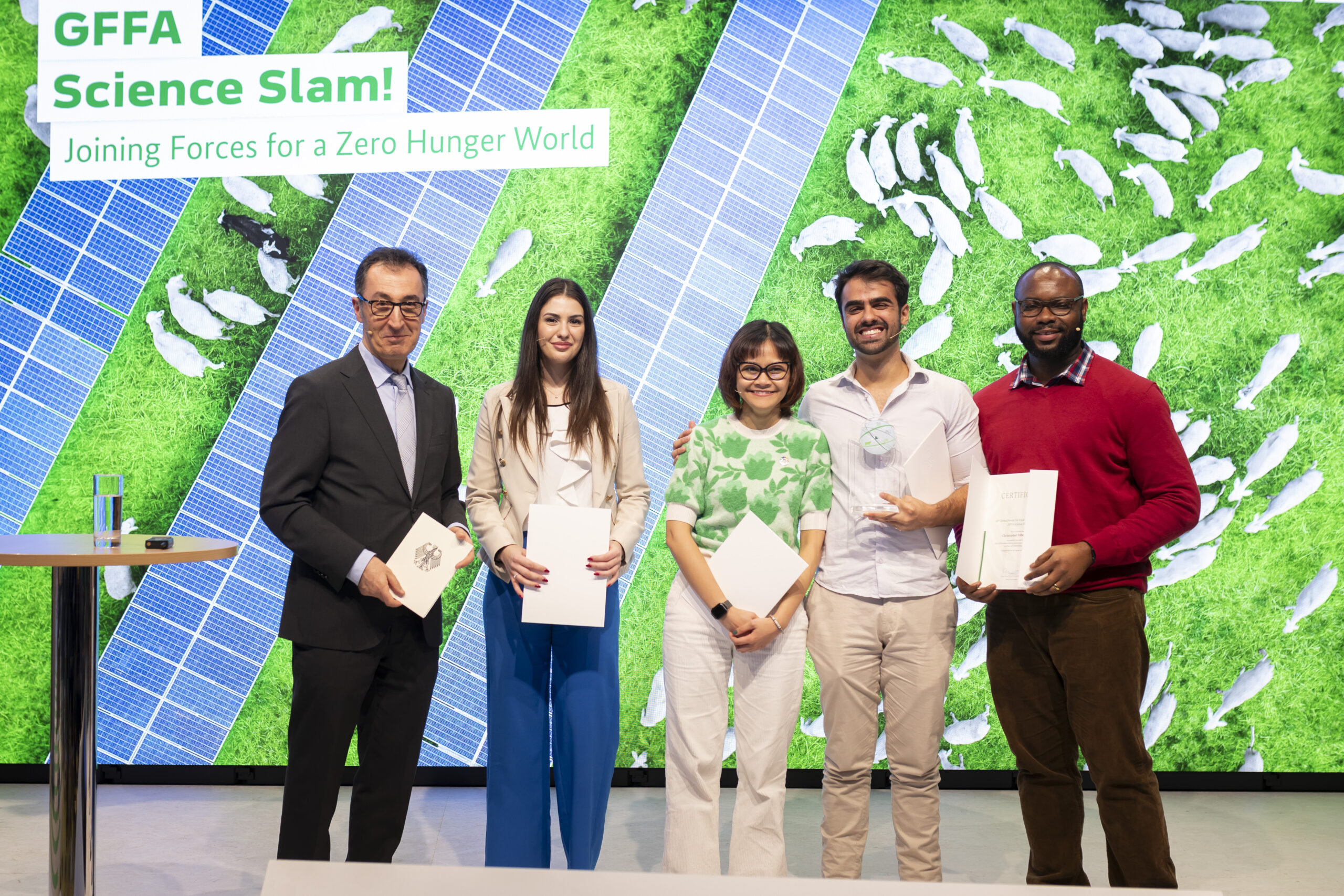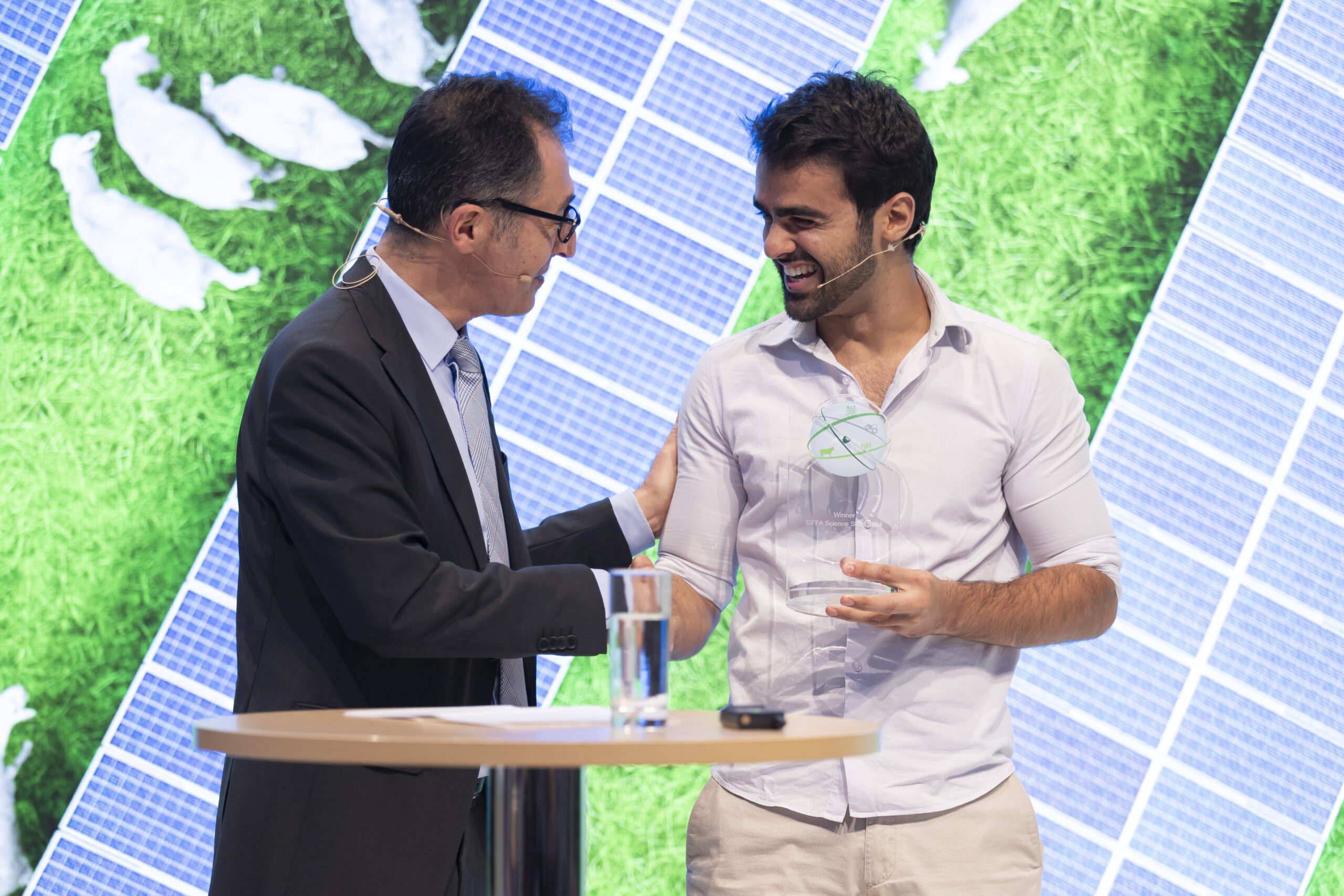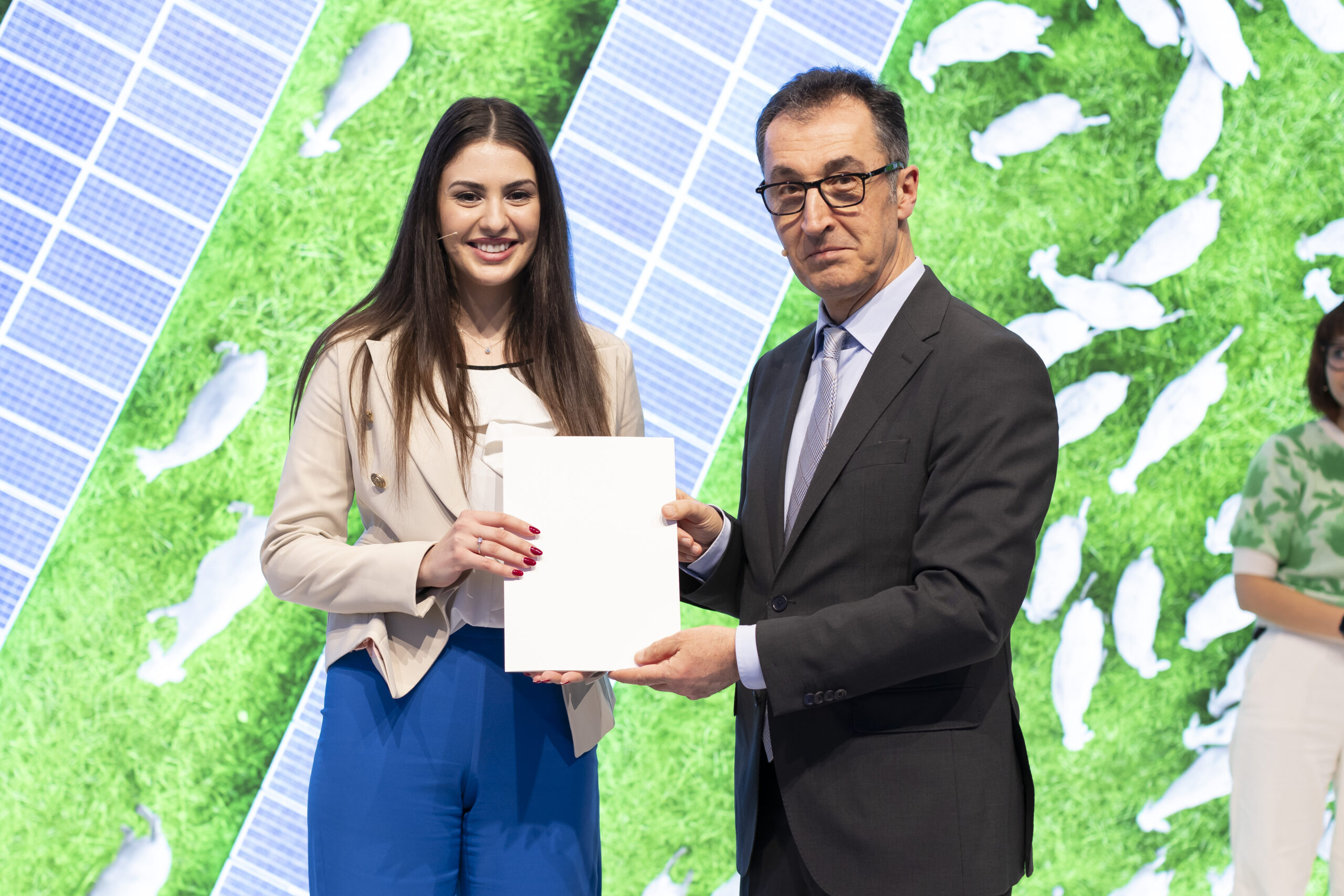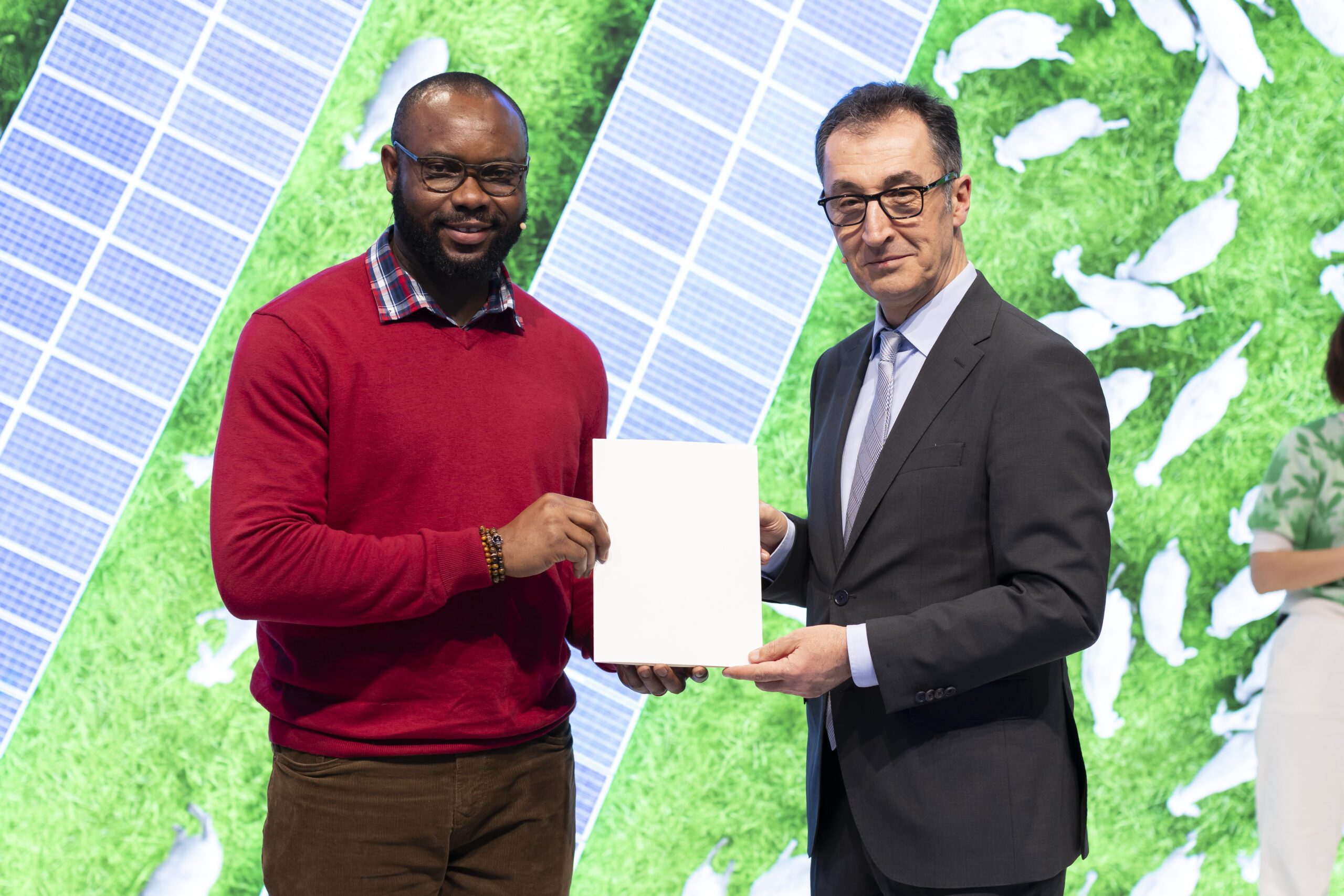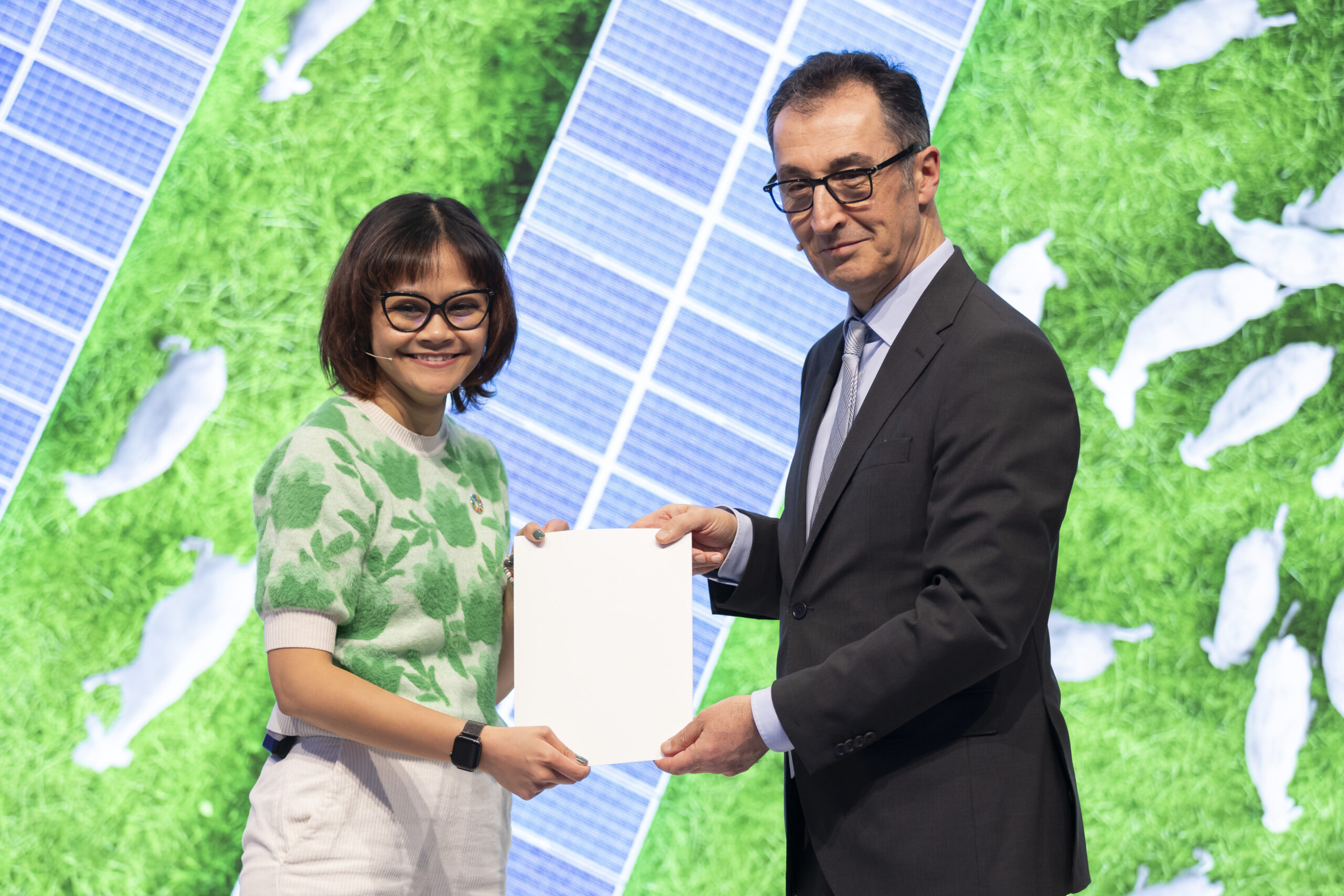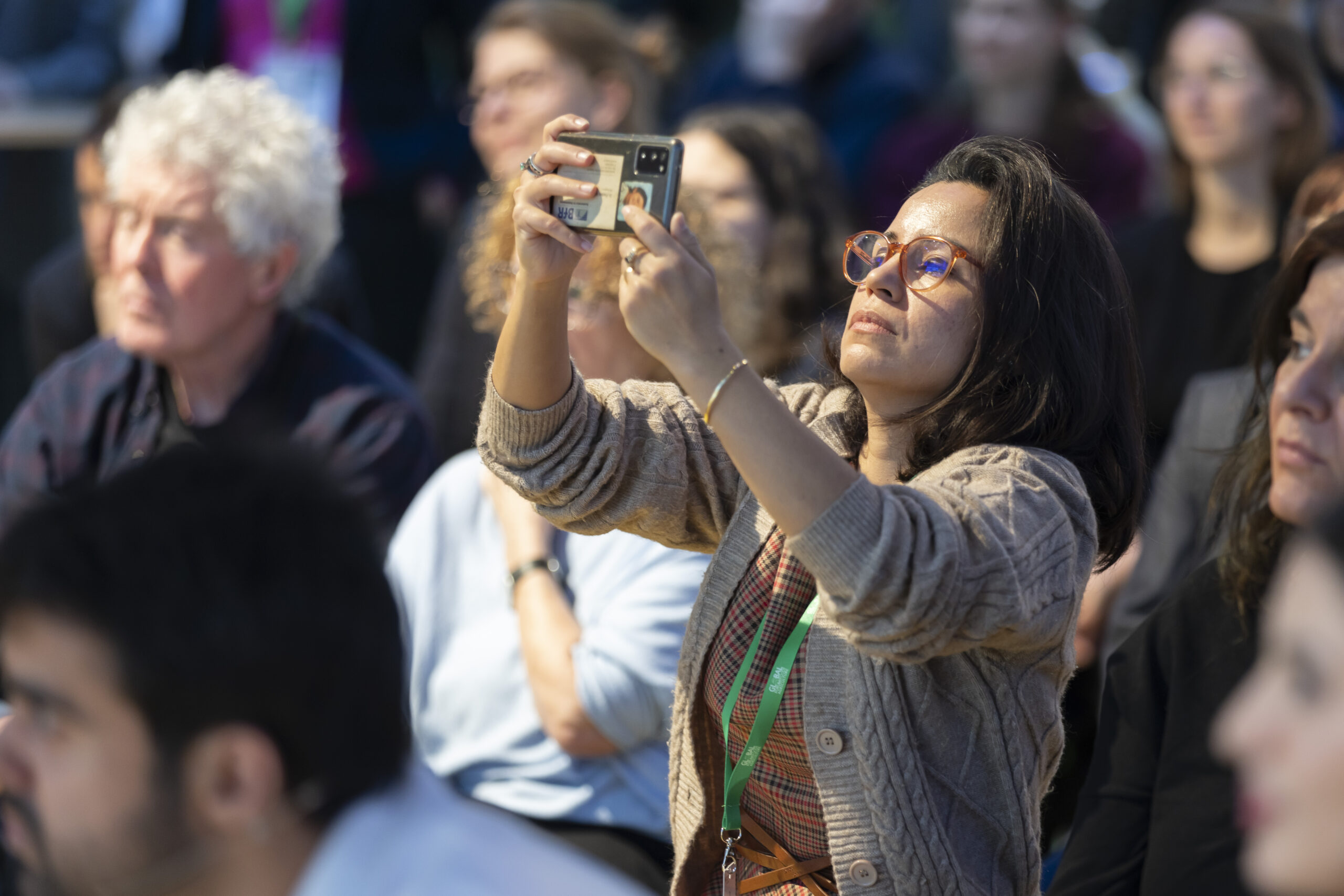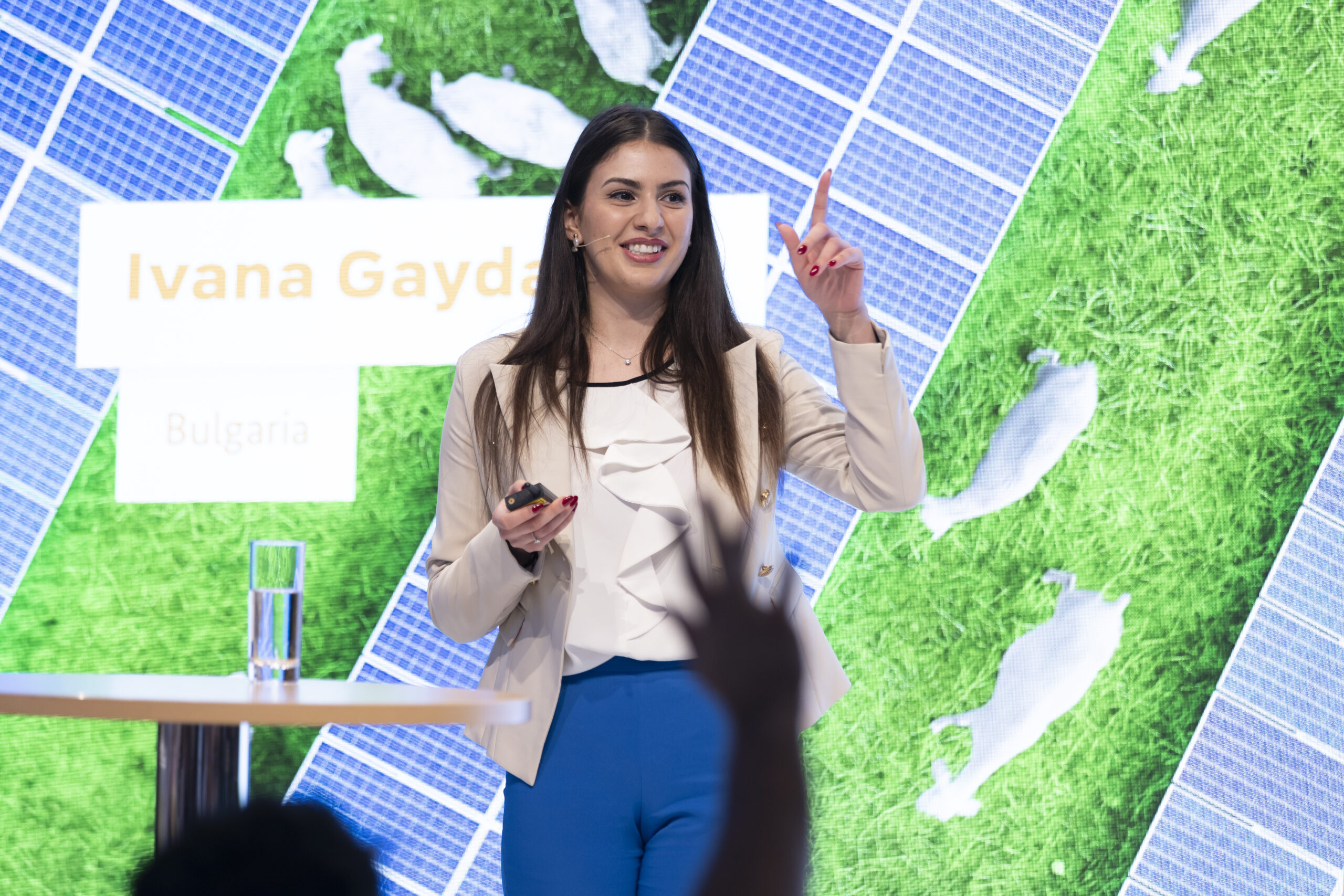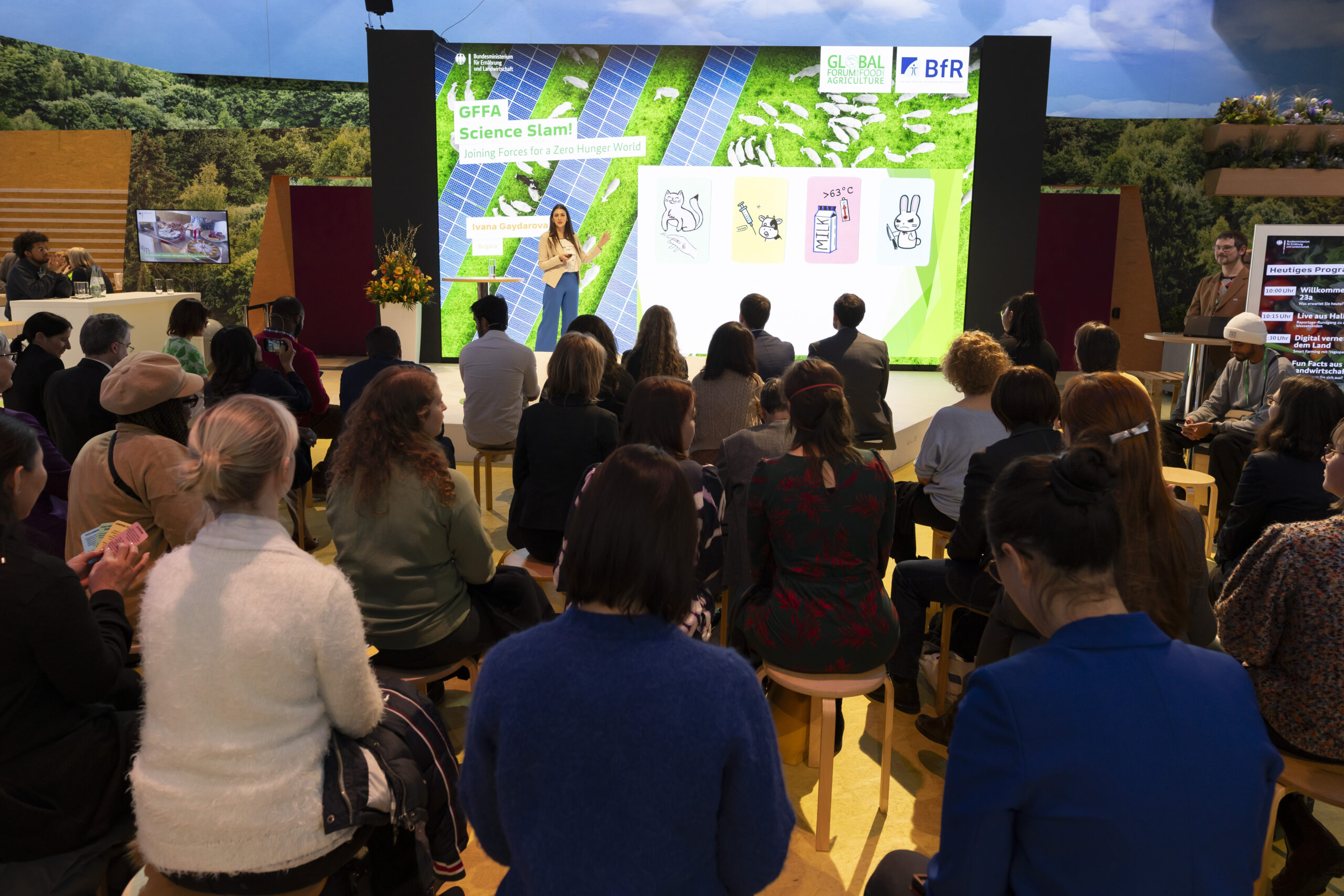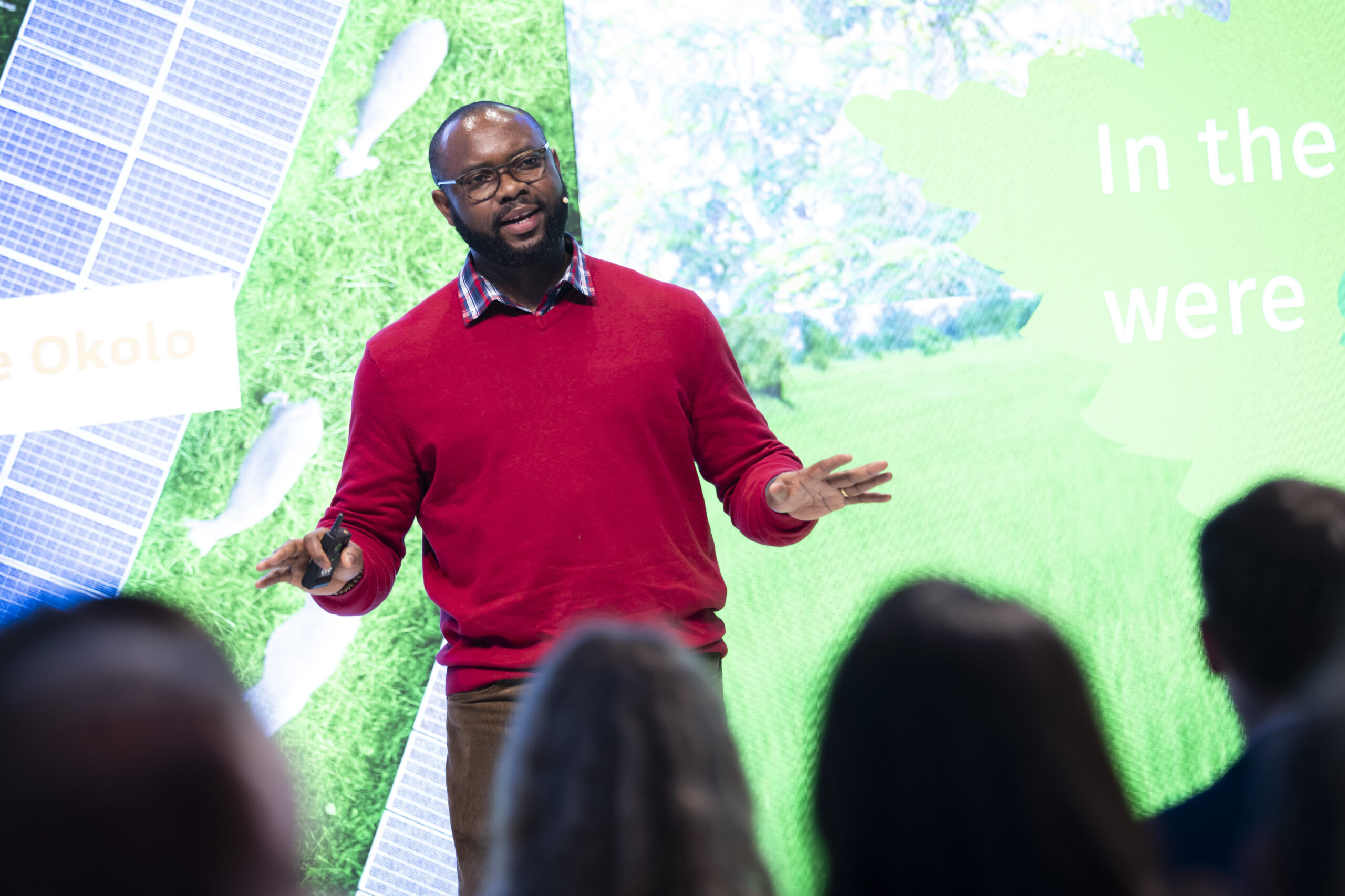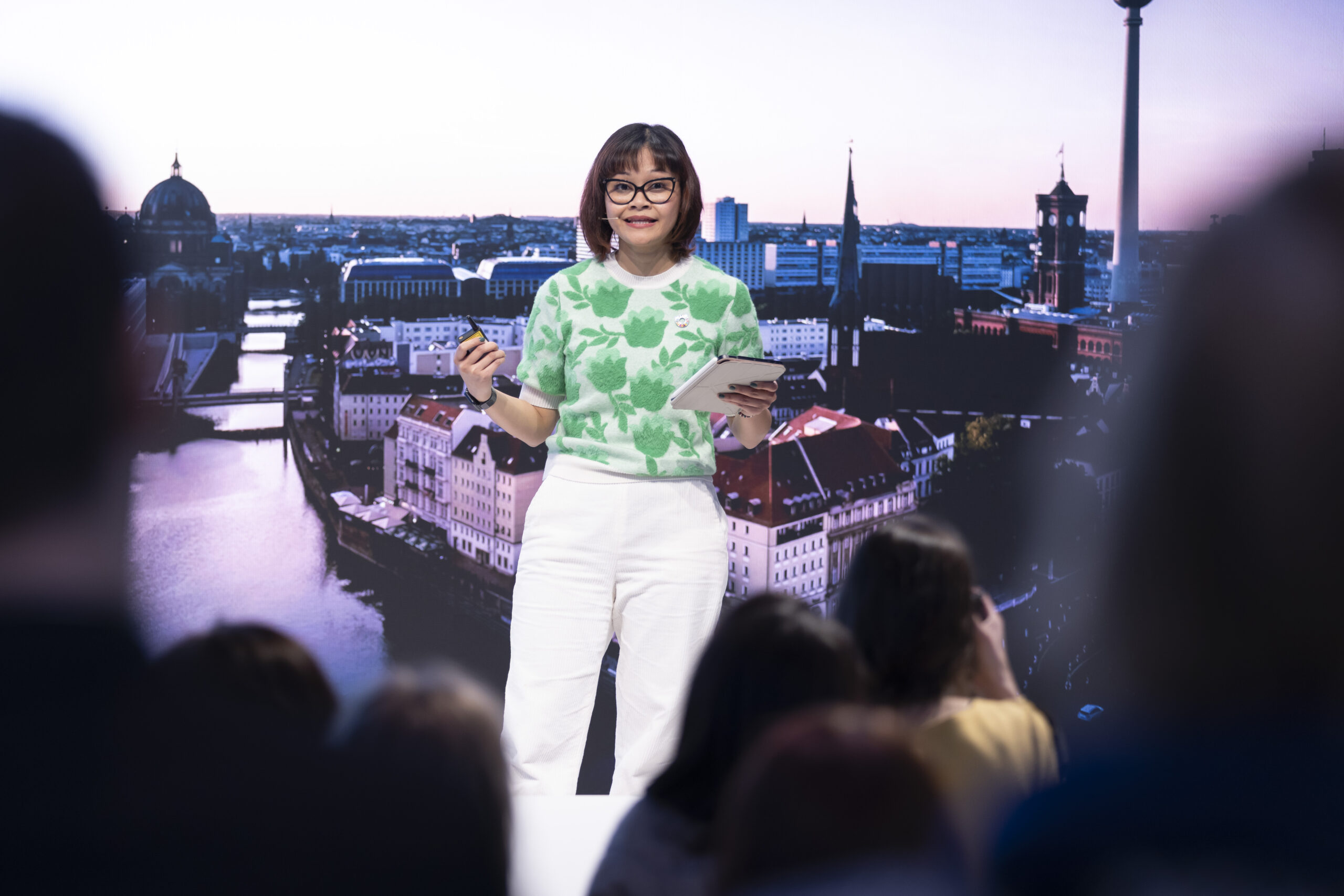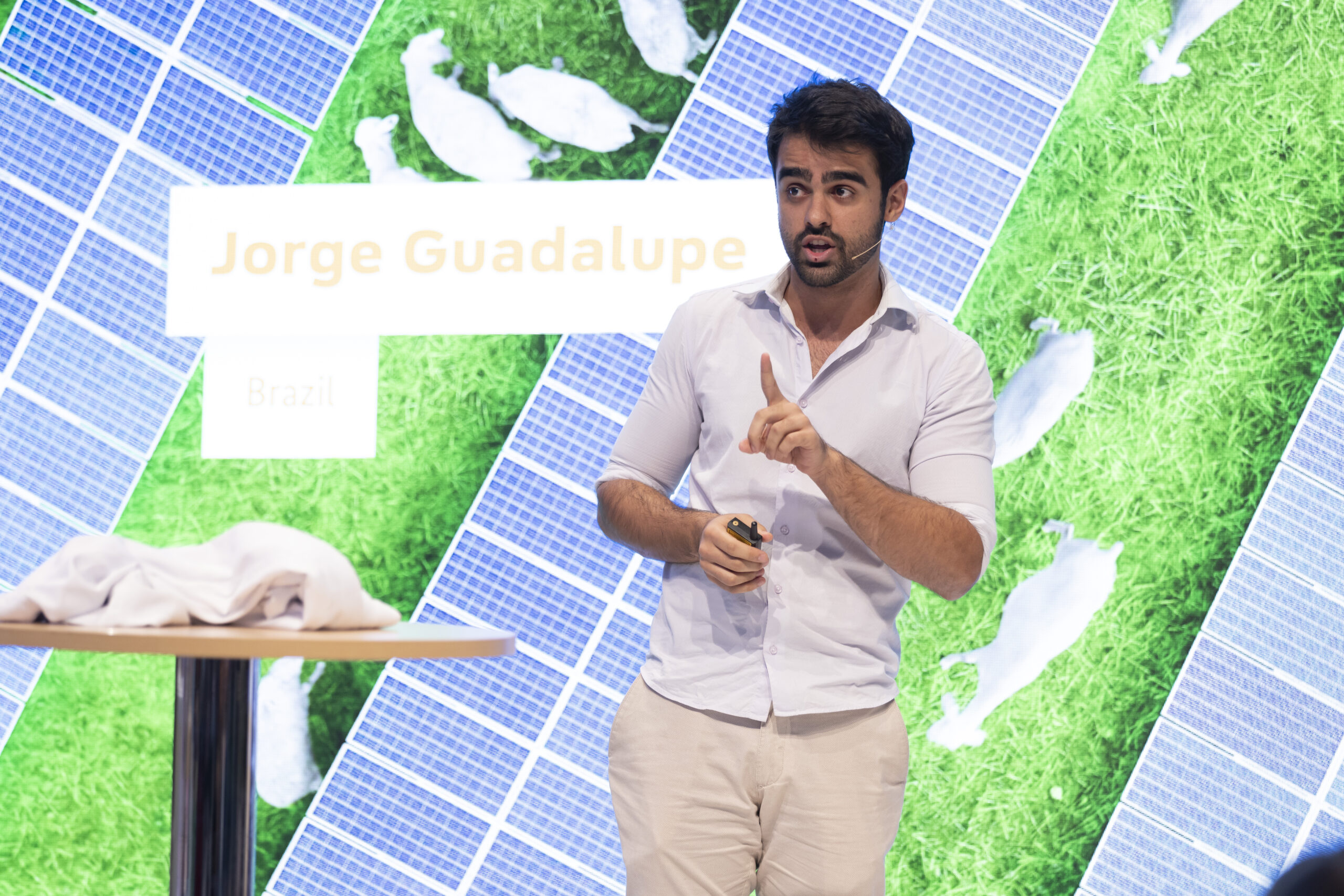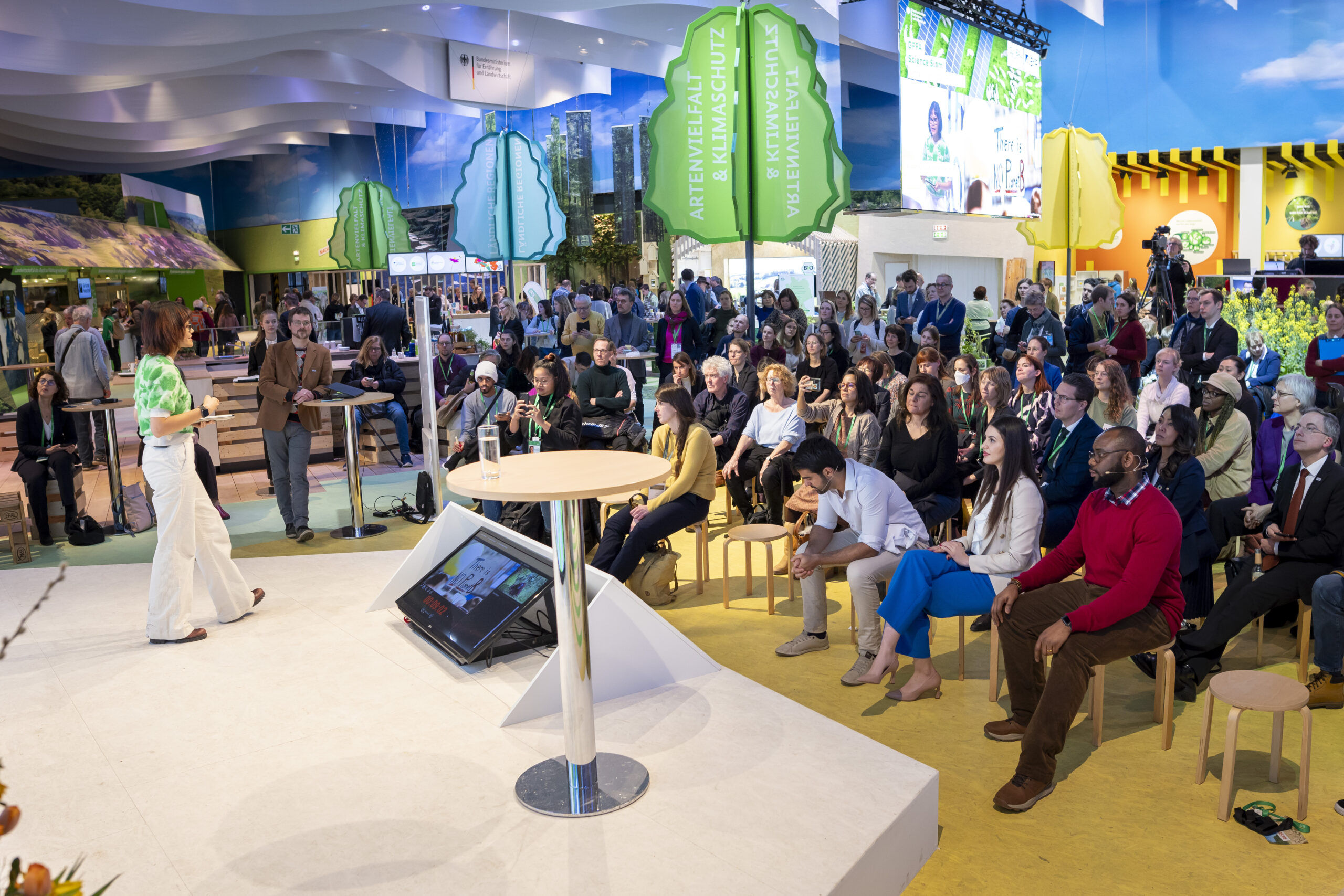2024 GFFA Science Slam
The 2024 Science Slam Winner is
Jorge Guadalupe
Congratulations!

Four slammers gave entertaining 10 minute presentations in English on the main topic of “Food Systems for Our Future” – live on stage in Berlin.
Following the slams, the international audience on site and online decided who would be awarded the GFFA Science Slam – Trophy 2024. The award ceremony was held by our Federal Minister Cem Özdemir.
Video-Recording of the 2024 GFFA Science Slam
Aktivierung erforderlich
Wir möchten Sie darauf hinweisen, dass nach der Aktivierung Ihre Daten an Youtube übermittelt werden.
You are most welcome to experience the four Science Slam presentations live or virtually by streaming on the 2024 GFFA Website and to help select the winner of this year’s 2024 GFFA Science Slam! You are invited to take the opportunity to have an exchange with the slammers before the event during the GFFA Innovation Forum. They will gladly present their projects and slam topics and illustrate them with their posters.
Science Slam candidates
We are most delighted to note that the 2024 GFFA Science Slam has been met with such keen interest and we are grateful for the applications we received from all around the world. We have selected the following four candidates out of a large pool of applicants:

In a world of population growth and urbanisation, where over two-thirds of us will soon call cities home, feeding billions sustainably becomes paramount. War and the COVID-19 pandemic exposed vulnerabilities in our food supply chains, highlighting the urgent need for resilient food security solutions. While huge investments are flowing into agricultural technologies, many vertical farms, for example, are still not profitable. My research looks at the factors influencing the acceptance of zero-acreage farming and what it takes to increase it for sustainable food production. By giving consumers agency, Iet’s explore the potential of the role of “prosumers”, where society takes part in food production as part of their built environment and navigate a new food future.
Short CV:
- Doctoral Researcher & Advisor, Strategic Initiatives, UNU-FLORES
- Advocacy and Public Affairs Officer, UNU-FLORES
- Editorial and Publishing Officer, Transparency International
- Teaching Assistant, Jacobs University Bremen
- Research Assistant, Universität Bremen, Transformations of the State Research Centre (SFB597)

The Battle of the Bugs: Entomopathogenic Nematodes vs. Insect Pests
Ever heard of insects causing food shortages? Well, you’re about to! Imagine, a tiny army of worms saving the day. Yes, you heard it right – worms! But not just any worms, these are the superheroes conquering the bad insects! Picture this – crops under siege by relentless insect pests, and chemical pesticides causing more harm than good – a farmer’s nightmare, it’s a disaster! But here comes our hero – the entomopathogenic nematode (EPNs). My research revolves around the exploration of EPNs as a sustainable biological control strategy for managing insect pests in agriculture and the goal is to raise awareness about the importance of EPNs in food systems while promoting sustainable pest management solutions for a world striving towards zero hunger.
Short CV:
- Junior researcher at the Center for Development Research, (ZEF), University of Bonn, pursuing a PhD in ecology, biodiversity, and biological control of insect pest sponsored by the DAAD scholarship
- Masters in Nematology at Ghent University Belgium, sponsored by the VLIR-UOS scholarship
- A decade exposure and experience in agricultural research in academia and industry
- Alumni of McKinsey Forward Program
- Certified Professional Scrum Master and Agile Trainer

As a future veterinarian, it is my passion and duty to keep all the animals healthy, to treat them and to prevent them from having any unwelcome diseases. However, the infectious pathogens that often attack our most beloved pets, can be dangerous to us humans, too! For this reason, I will present a few different, often neglected emerging and re-emerging infectious zoonoses, from which anyone could get infected and sick. Тhe cases for some of them are relevant in many countries. Based on the triad of One Health (healthy environment, healthy animals, healthy humans) this topic aims to integrate these fields together and educate all people and especially pet owners with the purpose of guiding them to better diagnostics, timely therapy and reliable prevention against these diseases.
Short CV:
- Born on 17.01.2000 in Asenovgrad, Bulgaria.
- Currently a fifth-year veterinary medicine student at Trakia University, Bulgaria.
- Recent internships at the animal clinics of Justus-Liebig University, Germany (June 2022- September 2023), and at Liverpool University, England (September 2023).
- Received the award “Student of The Year of Bulgaria” in the area of Agriculture and Veterinary Medicine studies (2021, 2022).
- Veterinary Student Volunteer at ‘Wildlife Friends Foundation’, Thailand (September 2022)

BBQ from a bioreactor: a steak that never made ‘moo’
Brazil is the second largest meat producer in the world and one of the biggest consumers. We have the largest meat company in the world and a solid Ruralist Bench at Congress, a staunch defender of agribusiness, a billion dollar pipeline responsible to deem Brazil the world’s barn. The question is: how an agricultural power, like Brazil, is dealing with the emerging technology of cultured meat? Among all these players, me. I am part of a research group at UFMG (Federal University of Minas Gerais), the best federal university of the country, that led one of the first research projects on cultured meat and was responsible to fry the first ever cultivated chicken in Brazil. Here I aim to delve into my research topic, in which my group worked to find a biocompatible, affordable and scalable scaffold to cultivate muscle cells during the differentiation phase of the cultured meat bioprocess.
Short CV:
- Newly-admitted PhD Student in Cell Biology at the Federal University of Minas Gerais (UFMG), aiming to work on 3D Bioprinting of Cultured Meat
- Master in Cell Biology, thesis on scaffolds for the differentiation phase on Cultivated Meat
- President of The UFMG Alt Protein Project, an extension project to spread the word of Cultured Meat at the university
- Bachelor in Biology and Biotechnology, thesis on Chagas Disease, a neglected tropical disease
Science Slam Facilitator:
Drew Portnoy worked as a foreign correspondent in Berlin for many years and has lived in the capital for more than 20 years. As a comedian and facilitator, he draws on his deep knowledge of German culture and politics to have a dig at Berliners, his family and above all himself with a large slice of self-irony. He has enthusiastically hosted numerous Science Slams all over Germany and in the US.
Our GFFA Science Slam is a competition that gives slammers the opportunity to present their scientific research topics. The main aim is to vividly convey scientific concepts to a mixed, technically interested but predominantly non-scientific audience. The focus is less on competition but rather on communicating specialist topics in a way that stimulates discussion and on interaction between the presenter and the audience.

